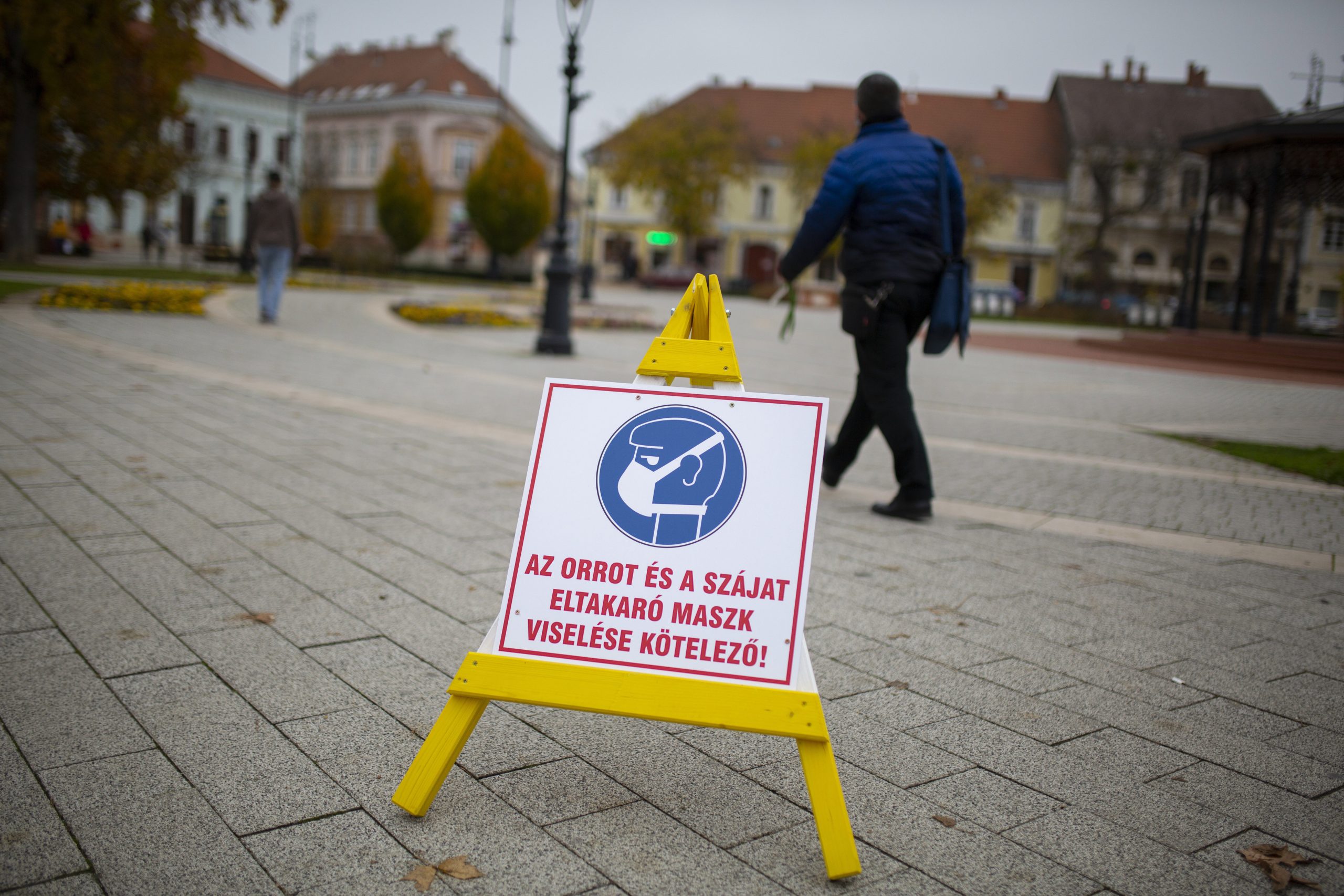
People will be allowed to go to hotels, restaurants, baths and water parks without an immunity certificate.Continue reading

The government, while constantly stressing the importance of vaccination, is reluctant to impose any further measures to curb the spread of the virus, even though the fourth wave has seemingly begun in Hungary. Not even the simplest and least cumbersome of them: the mask mandate, despite the many experts who have recently proposed it, including the presidents of the Hungarian Medical Chamber and the Hungarian Academy of Sciences.
Just as everywhere else in Europe, Hungary has been seeing an increase in the number of daily infections since the beginning of August. The situation, for which the Delta variant is mainly responsible, gained further momentum at the end of the month, while the arrival of autumn and the start of the school year are expected to further this trend.
While everyone is hoping that the current wave will be much milder thanks to vaccines, millions of people in Hungary are still unvaccinated. As international experience shows that the infection is more likely to spread among the unvaccinated who are more likely to become seriously ill, be hospitalized, or even die, experts are urging those who have not yet applied for a vaccine shot to get inoculated to avoid being exposed to the new variant.
The Hungarian government also continues to stress this, although it does not seem to want to reintroduce any other measures since most of the restrictions in Hungary were lifted in July. Not even the simplest and least cumbersome of them: the mandatory use of face masks, claiming it wouldn’t make sense anymore in the current situation.
Even Prime Minister Viktor Orbán himself downplayed the importance of wearing masks not more than a week ago in a radio interview.
“The vaccine saves lives, and only the vaccine saves lives. Wearing masks and social distancing won’t help. With more than a year of experience, we now know very well that only vaccines can protect us, only they can save lives,” Orbán said.
When directly asked in a follow-up question about face masks, the prime minister replied: “When we had to wear masks and tried to isolate infected people, the effectiveness of those measures was low, while the effectiveness of the vaccine is overwhelmingly high. So there’s no point in trying less effective methods…”
However, last autumn the Orbán government made mask-wearing mandatory.
Semmelweis Rector Béla Merkely, who is a cardiologist and a member of Viktor Orbán’s epidemiological team of experts, shared a similar opinion, claiming that face masks are less effective against the Delta variant of the coronavirus.
Most experts in Hungary, however, think the complete opposite is true, advocating mask-wearing in enclosed areas and in large crowds.
The President of the Hungarian Medical Chamber (MOK) recently issued a letter to the coronavirus Operative Board with several proposals for effective protection and prevention against the fourth wave.
In the letter, Gyula Kincses suggests that the government should initiate the establishment of vaccination points without mandatory prior registration to increase the vaccination rate, and the widespread use of immunity cards. The MOK President also proposed the reinstatement of the mask mandate in shops, shopping centers, and closed public areas.
Just like Gyula Kincses, the President of the Hungarian Academy of Sciences (MTA) also advocated compulsory mask-wearing.
In his recent resolution regarding the fourth wave of the COVID-19 epidemic, Tamás Freund also emphasized the importance of vaccination while making several recommendations to the government.
Vaccines are the most important tools to defend against the epidemic, they are effective and safe “according to our current knowledge,” and the incidence of serious side effects is very low, especially compared to the life-threatening and health-damaging effects of Covid-19, Professor Freund wrote.
According to reports from countries around the world, almost 90 percent of patients hospitalized or placed on ventilators during the fourth wave are unvaccinated. Vaccination is important not only to prevent deaths, as the new coronavirus causes long-lasting and severe damage to the blood vessels, blood clotting, and nervous system.
The Academy’s President said it was important that young people aged 12 to 18 receive the vaccine, and a third dose for people over 60, immunocompromised patients, and citizens at high risk for infection.
In his list of recommendations, Tamás Freund said it would be worth considering “abolishing compulsory registration, which strongly reduces the willingness to vaccinate,” expanding the possibility of administering vaccines on a wide scale, easing the burden on doctors who recommend and administer vaccines, and allowing antibody testing of the elderly and those at risk to be carried out with state support.
The Academy’s President also believes that the government should consider mandating the use of immunity cards and masks for visiting events with large crowds or highly susceptible populations, especially in enclosed spaces, as soon as the epidemiological situation warrants.
Unlike Hungary, the use of face masks is still mandatory in many European countries to some extent.
In Austria, masks must be worn in enclosed public spaces, and in Spain they are compulsory in shops, restaurants, concerts, etc. In Belgium, it is compulsory in shops and in the Netherlands on public transport.
Although not a European country, Israel, perhaps the most vaccinated country in the world, is often cited as an example as it had to reimpose its indoor mask mandate after only ten days of easing restrictions.
Featured photo illustration by György Varga/MTI